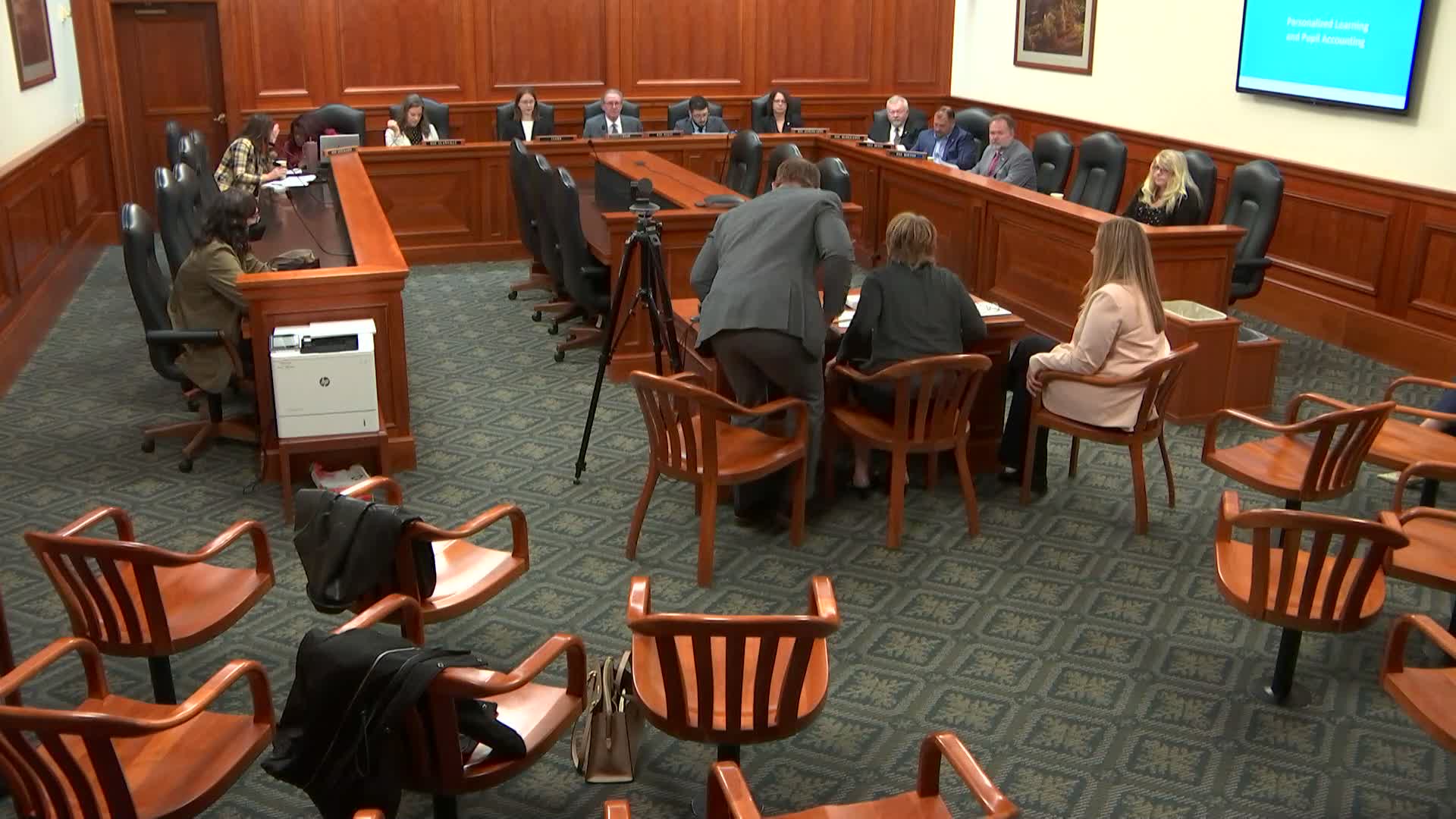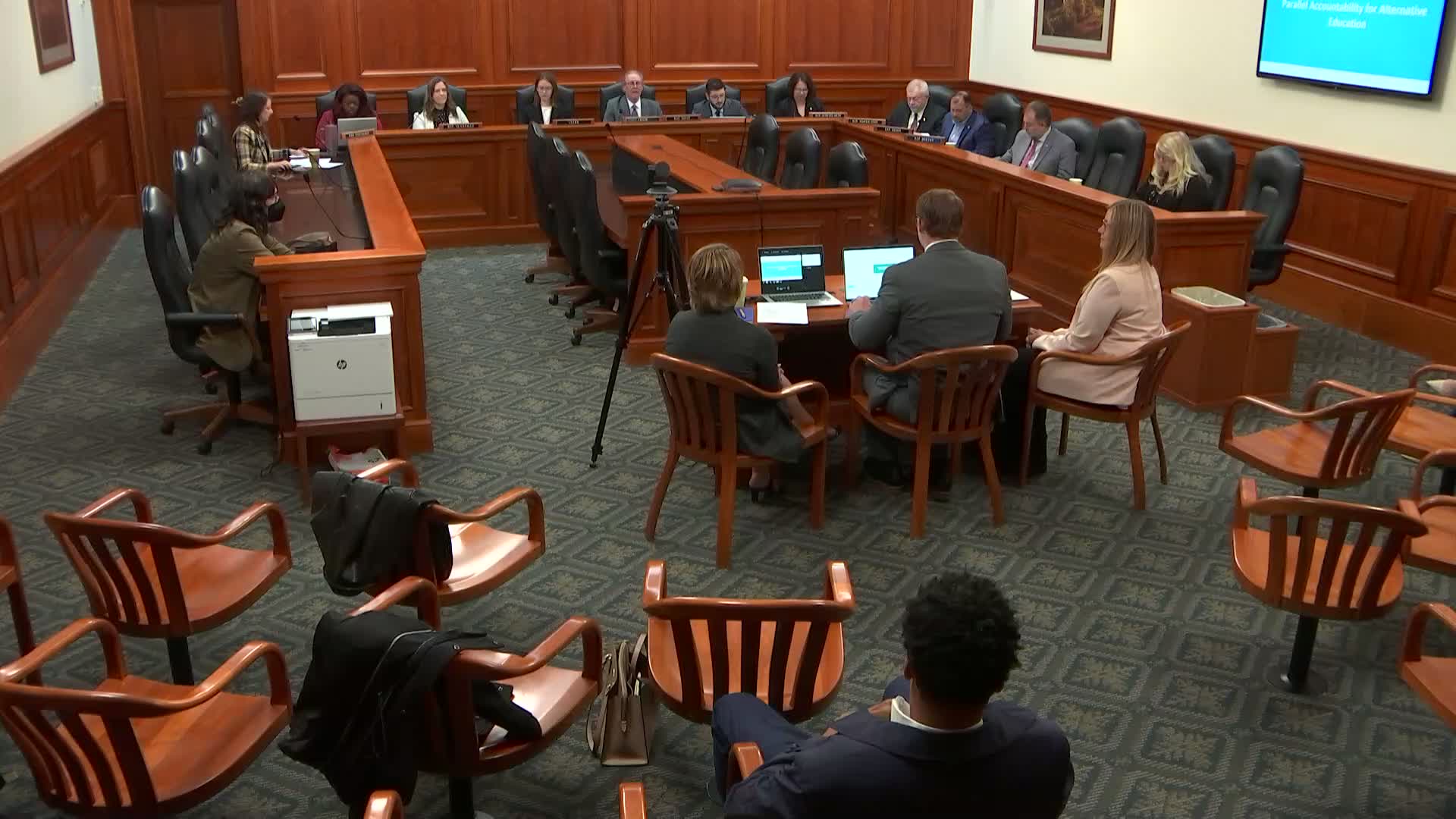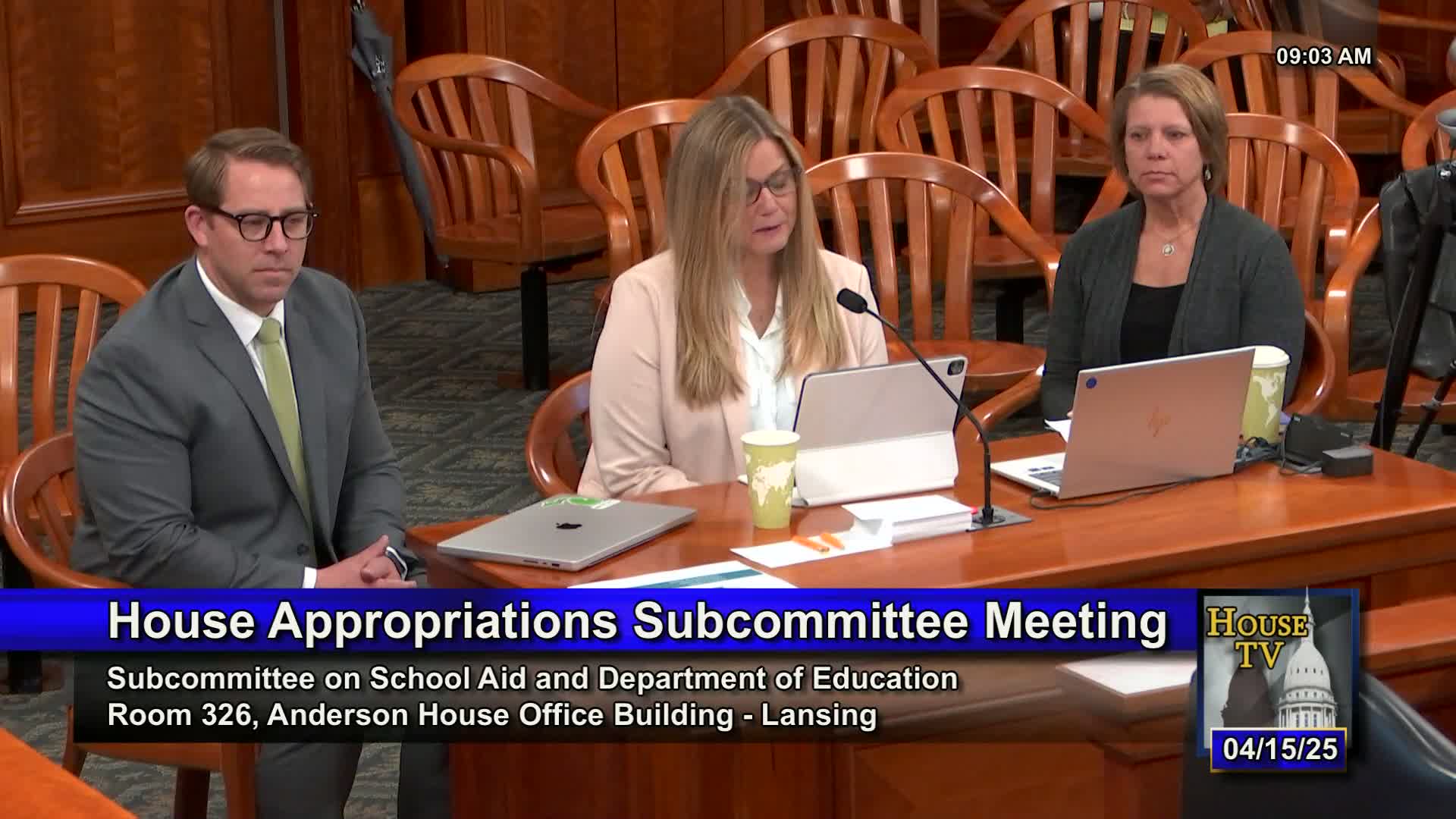Article not found
This article is no longer available. But don't worry—we've gathered other articles that discuss the same topic.

Personalized-learning task force urges pupil-accounting reform to scale flexible schooling options

Educators tell appropriations subcommittee universal accountability labels alternative education as underperforming; propose parallel system

